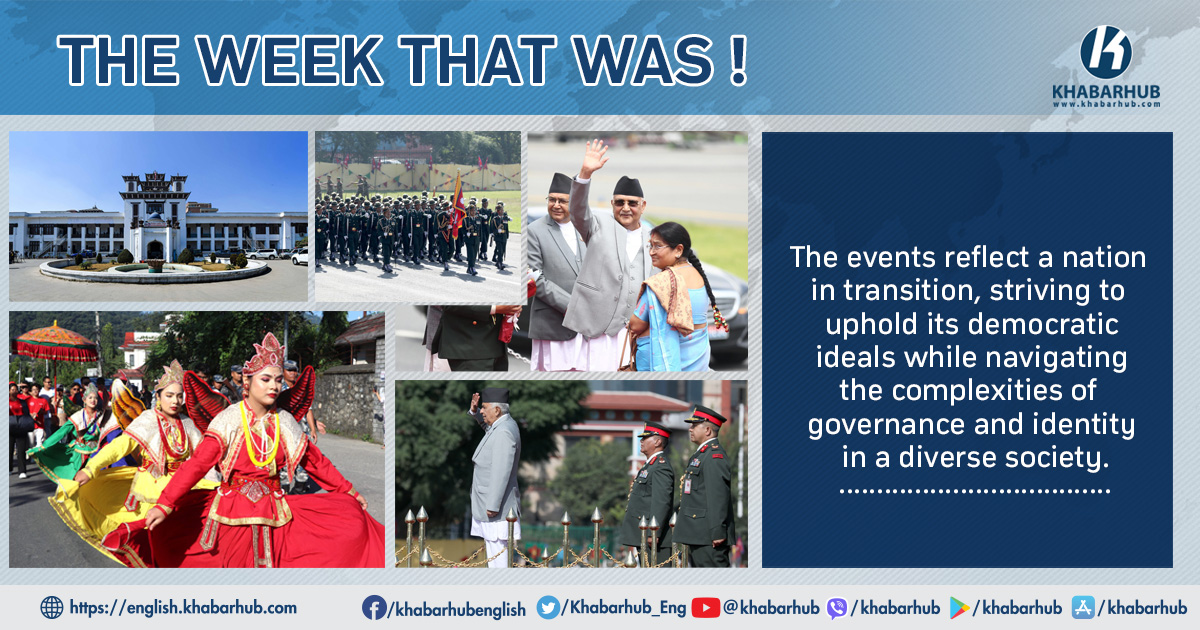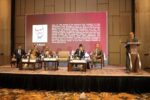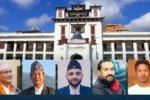KATHMANDU: Last week was a vibrant tapestry of political and cultural milestones in Nepal, marked prominently by Constitution Day on Ashoj 3.
This day not only celebrates the promulgation of the country’s seventh constitution, crafted by representatives of the people, but also stands as a testament to Nepal’s journey towards establishing a federal democratic republic.
The constitutional framework aims to uphold the socioeconomic and cultural rights of citizens, reinforcing a commitment to socialism that resonates deeply with the aspirations of many Nepalese.
The festivities surrounding Constitution Day were grand, emphasizing the importance of unity and progress in the wake of the second people’s movement and the subsequent peace accord.
The event served as a reminder of the hard-fought battles that shaped the current political landscape, including the abolition of the monarchy and the establishment of a federal system.
This foundation is crucial as Nepal continues to navigate its identity and governance structures.
In the midst of this reflective atmosphere, Prime Minister KP Oli departed for New York to lead the Nepali delegation at the 79th United Nations General Assembly (UNGA).
His address, focused on the theme of inclusivity and sustainable development, underscores Nepal’s commitment to global dialogue and cooperation.
The Prime Minister’s participation at the UNGA not only showcases Nepal on the international stage but also aligns with the constitution’s ethos of ensuring that no citizen is left behind.
On the domestic front, significant political developments unfolded with the coalition government presenting a Common Minimum Program (CMP) to PM Oli.
This initiative, steered by the Nepali Congress and CPN-UML, reflects an intent to enhance economic sustainability and engage youth in governance.
As the coalition strives to unify their agendas, it is crucial for them to effectively translate these plans into action.
Meanwhile, the Election Commission announced local level by-elections, scheduled for December 1, marking a critical juncture in local governance.
With party registrations set to begin soon, this development will test the political landscape as parties gear up to engage voters and address pressing local issues.
Sher Bahadur Deuba, President of the Nepali Congress, reassured the public that the provincial structure will remain intact, emphasizing its importance in the current governance framework.
His comments come amid ongoing debates about decentralization and accountability, suggesting a need for a more responsive provincial system rather than dismantling it.
Culturally, the observance of Indrajatra added color to the week, celebrating the traditions of the Kathmandu Valley with processions and rituals that honor Lord Indra.
This festival not only highlights the rich cultural heritage of Nepal but also serves as a reminder of the community’s resilience and unity in celebrating their roots.
On the economic front, the government’s expenditure report revealed a modest 7.5% spending in the initial months of the fiscal year.
While this figure may appear conservative, it points to the government’s cautious approach in managing resources during a challenging economic climate.
Meanwhile, the announcement by Rajendra Mahato of the National Liberation Revolution Nepal Party introduces a new dimension to the political discourse, advocating for the rights of marginalized groups and proposing the concept of a multi-nation state.
As the week concluded, the submission of the annual report by the National Natural Resources and Fiscal Commission to President Ram Chandra Paudel highlighted the ongoing commitment to fiscal federalism, an essential aspect of Nepal’s governance that requires careful attention and implementation.
Last week encapsulated the dynamism of society—balancing the reverberations of its constitutional legacy with the pressing needs of contemporary governance, cultural celebration, and economic management.
Overall, the events reflect a nation in transition, striving to uphold its democratic ideals while navigating the complexities of governance and identity in a diverse society.









Comment